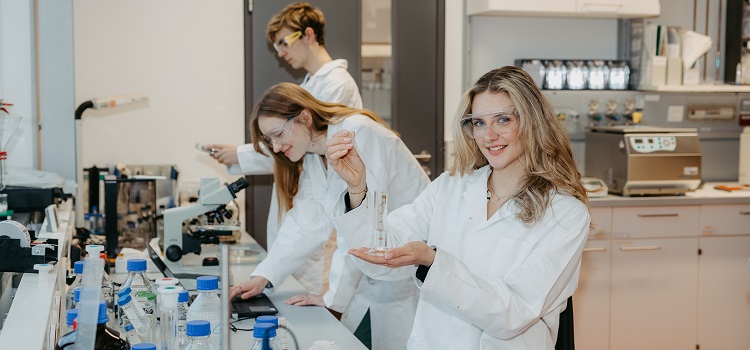Promoting young academics
The training of students and doctoral candidates is part of the CDS's promotion of young scientists. Various study programs at Otto von Guericke University Magdeburg and offers for doctoral students at the Max Planck Institute Magdeburg and Otto von Guericke University provide for a targeted education of young scientists.
The study programs Biosystems Engineering, Systems Engineering and Technical Cybernetics, Energy and Process Engineering and Sustainable Process and Environmental Engineering are part of a development strategy for young talents by the CDS.
To support the career of PhD students we offer the IMPRS SysProSus, the Research Training Group 2297 MathCoRe and the Research Training Group 2408 at the Medical Faculty.


